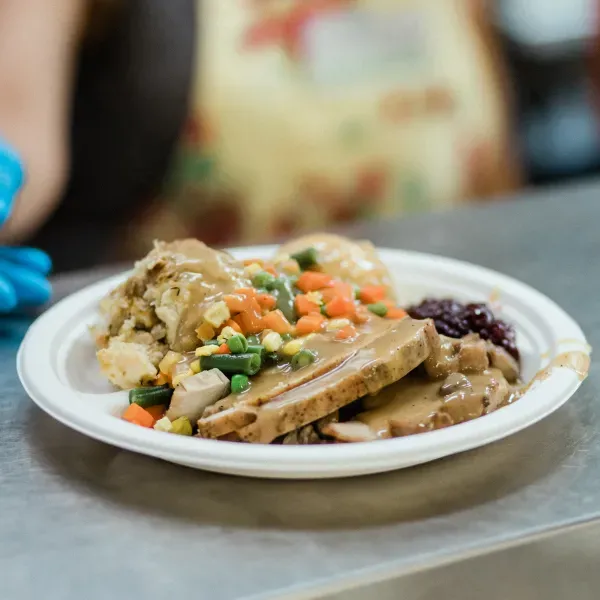One of the best things about kids is that they’re full of imagination. For small children, the world is full of possibility and wonder: any cardboard box could be a rocket ship, any broom could be a pony, any person could be a potential friend.
Kids remind us to approach the world with grace and curiosity. So when it comes to complex topics like addiction, parents and caretakers already have a great starting point. But how do we help our kids keep their hearts open and caring for the long term? Here, we speak to two Union Gospel Mission team members about how they talk through addiction with their kids. We hope that their tips can equip you on your journey raising empathetic and understanding young people.
1. Start by destigmatizing
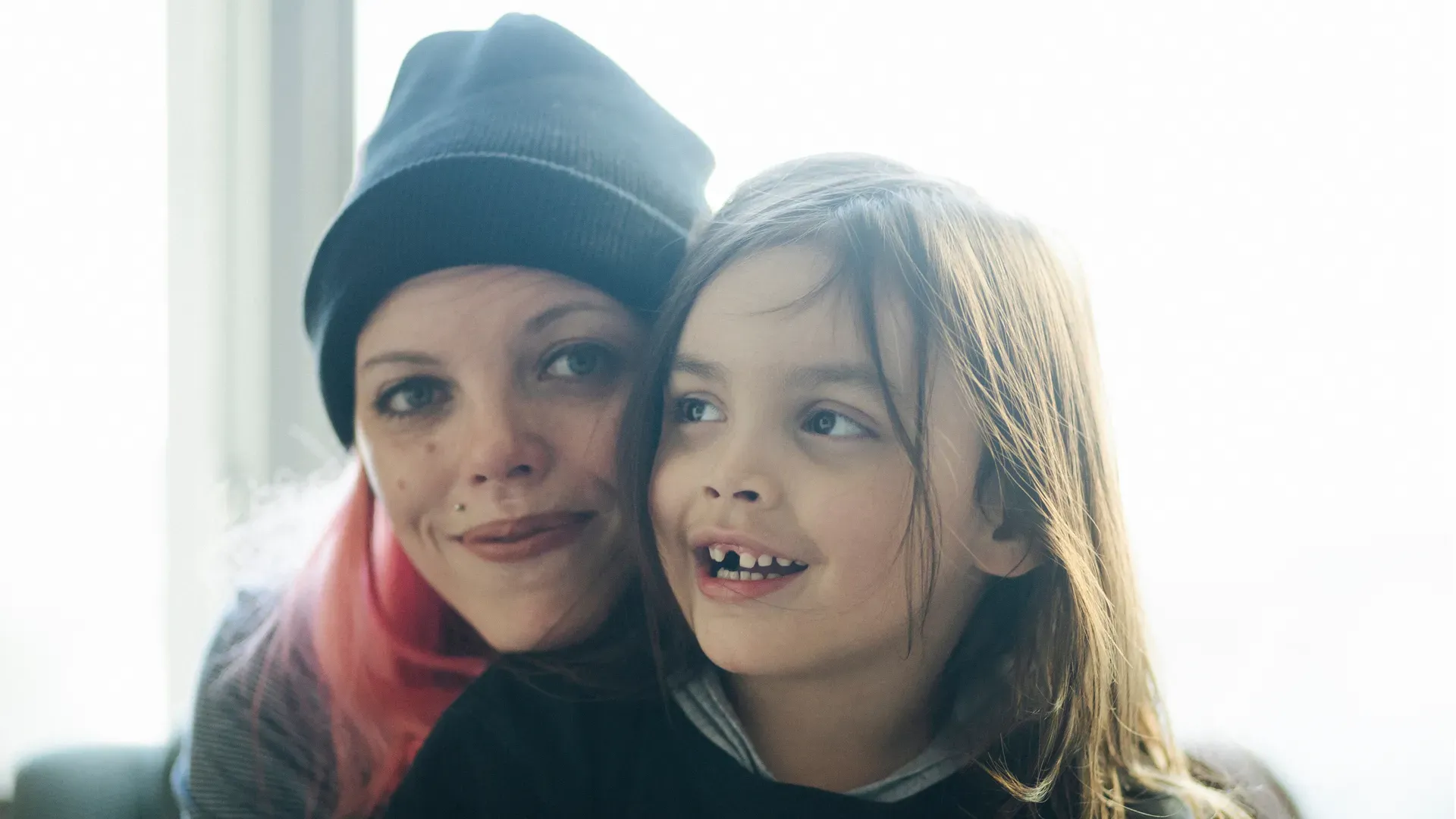
It’s too simplistic to say that some people experience addiction and others don’t. Almost all of us will have known, loved, or walked alongside someone experiencing addiction — and some of us will have personal stories of substance use. But there’s a wider entrypoint for the discussion around addiction, and that is that many of our personal behaviours can lead to repetitive patterns when they’re not held in balance.
Geoff, the Nightshift Supervisor in UGM’s Men’s Shelter, introduced his children to the topic of addiction by talking about habits. “In the early days, we talked with our kids about health,” says Geoff, whose children are now 14 and 12. “We talked about how, for example, being on our screens for long periods of time can cause us to isolate. If you're on your screens all the time, you're not connecting with people — it’s good to get outside to get some sun and physical activity.”
“I try to take the stigma out of the conversation right from the start,” agrees Meaghan, who is currently on maternity leave and has worked on both Men’s and Women’s programming at UGM. “This usually sounds something like, ‘Everyone [makes choices about] their bodies, and some of those choices have more visible and bigger consequences.’”
There is also a genetic component to addiction — some people are more predisposed to develop a substance use disorder than others. However, like many of the qualities we inherit in our genes, a family history of addiction doesn’t mean a person is guaranteed to develop a substance dependence. For kids, the key detail here is that everyone’s bodies are different, and everyone faces different advantages and challenges when it comes to living in their body.
By talking about addiction as something everyone has the potential to face, parents can plant a seed of compassion in small children that can expand as they grow.
2. Have conversations about hurt
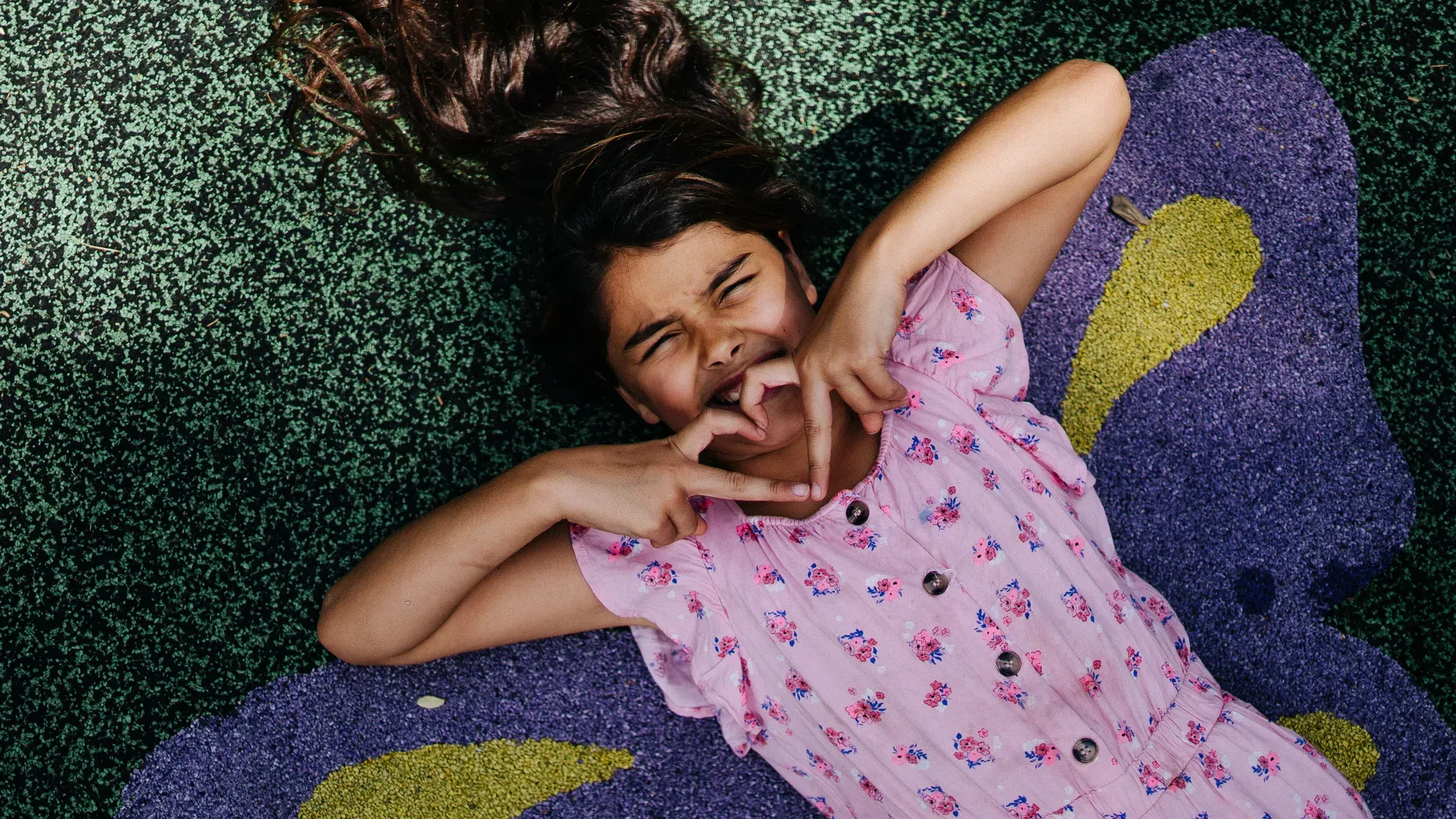
For kids ready for the next level of discussion, it can be important to unpack how people in emotional and psychological pain sometimes turn to substances to find relief. Studies have indicated that nearly two-thirds of injection drug use can be attributed to abusive and traumatic childhood events. Building compassion in our kids about addiction should include gently helping them understand that not everyone has a safe homelife — and not everyone has the tools to address their traumas or difficulties.
“My son knows about the work I did with parents trying to be reunited with their children,” shares Meaghan, whose son is five and daughter is one. “He had a lot of questions about why kids would ever not be with their parents when it came to addiction. My answers often sounded like: ‘Sometimes parents don't get a chance to learn how to take care of themselves growing up, so they have to take some time apart from their child. Once they know the best ways to take care of themselves, then they can learn how to take care of a child.’”
Geoff has found that considering people’s childhoods helps him relate to them as adults. “I’ve appreciated understanding trauma as a gateway for addiction,” he says, and recommends Gabor Maté’s books for anyone looking to deepen their understanding of trauma and childhood development. By remembering it’s sometimes hardship that leads people into addiction, caretakers can help kids expand their thinking.
Relatedly, it is vital to keep in mind that people’s pain is not always personal — sometimes it’s systemic. Whether people experience racial discrimination or economic deprivation, ableism or sexism, societal inequality makes life harder for some people than for others.
Meaghan makes a point of discussing with her children the many different ways people experience the world. “I’m trying my best to raise my kids with diversity-and-inclusion outlooks wherever possible,” she says. “Sometimes this sounds like, ‘The world will be a certain way for you and that’s not going to be the same experience everyone else has. You don’t need to feel bad about this, just be aware. Be ready to listen and to help others listen to voices that aren’t heard as often or at all.’”
3. Make safe spaces for questions
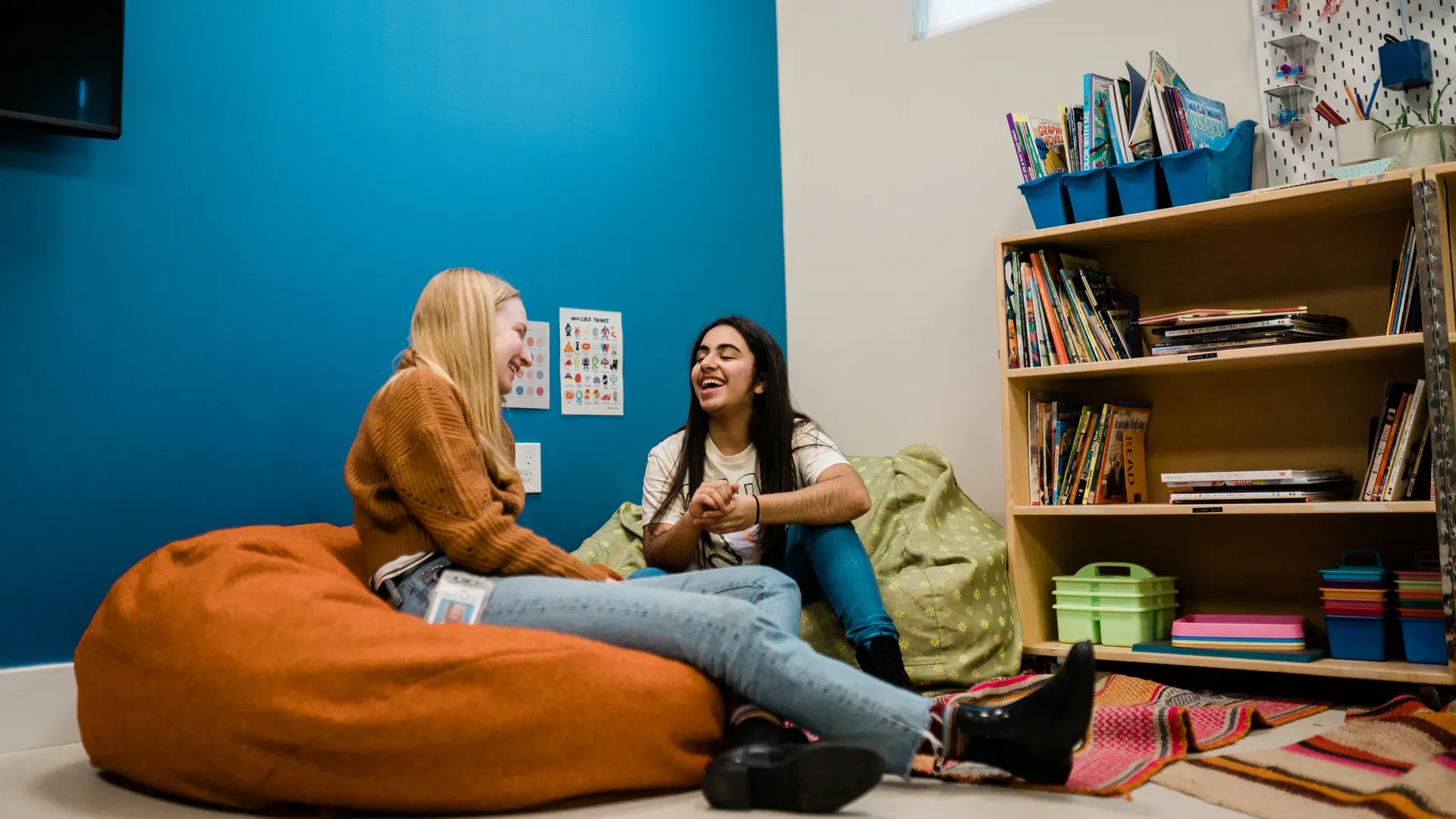
Don’t feel you need to address the entire topic of addiction with your kids in one go. As with most topics in life, your kids will likely revisit this one, and holding non-judgemental space for questions is one of the best things you can do as a parent.
“My son is getting older, so he's actually initiated some conversation about alcohol, and even mentioned how he's interested in trying a drink when he's a little older,” says Geoff. “And so we talked about that.”
Part of that space-holding involves knowing when your kid has capacity — and when to take breaks. “I think my biggest recommendation is that if your kid is noticing or asking questions about addiction then chances are they are quite empathetic,” says Meaghan. “I’m always trying to find the balance between what their curious minds can take in with how much their wee hearts can handle. For example, when my son passes people living in tents, here’s a snippet of what our chats might sound like: ‘Everyone deserves a safe and warm place to live. Mommy and her friends work to try and make sure that happens. I know your heart hurts when you think about this, but it’s not for you to worry about right now. Know there are lots of people working to change it, and you will find your own way to help heal the world as you grow. For now, Mama and her friends are helping — you just work on growing up, having fun, and being kind!’”
The good news about discussing challenging topics with kids is that you don’t have to do it in a vacuum. Where possible, connect your children with communities that are also handling big conversations in positive ways. “We find it valuable to be part of a church that welcomes conversation about mental health and addiction,” says Geoff. “It's not a taboo conversation, not something that we pretend doesn't touch us. I’m glad my children know people who are in recovery, people who struggle with addiction — I think those relationships, along with us being honest about our own struggles, can take away any ‘us-versus-them’ thinking.”
And when a kid asks a question at an inopportune moment? Meaghan recommends having a response handy like: “‘That’s a really insightful question and I’d love to talk more about it with you when we have the time to do it properly. Think we can both try to remember for when we get home?’”
4. Invite kids into care
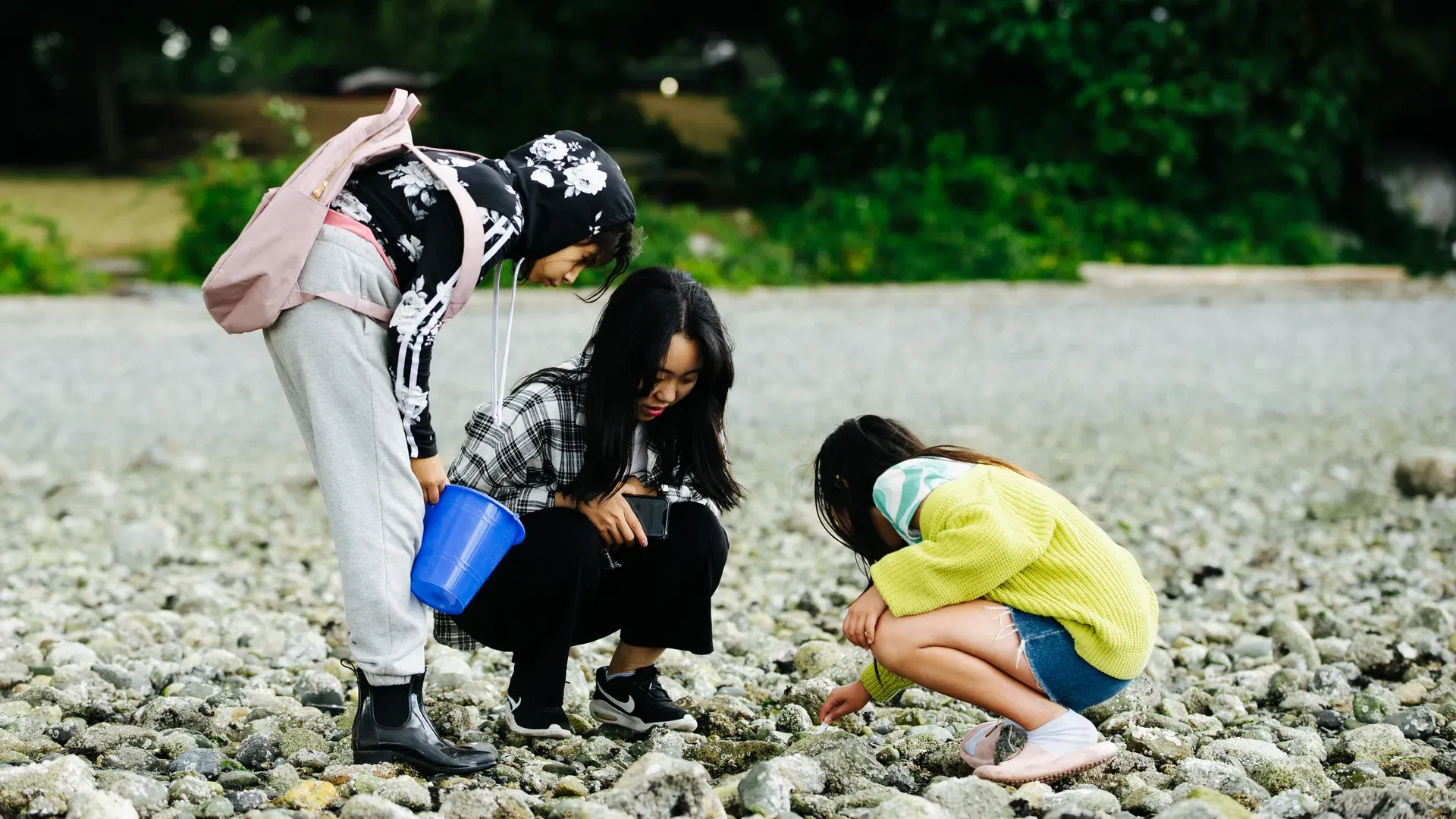
As Meaghan mentions, it isn’t the job of kids to solve the world’s big problems. It’s our role as caretakers to protect them as they grow, while giving them chances to build kind and loving connections and friendships.
When it comes to caring for others, Meaghan likes to invite her kids into safe, supervised conversations. “I think the best way kids learn is by doing,” says Meaghan. “We go to the local Legion every year for Remembrance Day and we will often sit with a veteran who happens to be there alone. Yes, it’s awkward to start the conversation and be together but eventually it’s a wonderful connection. After several years of witnessing this, my son pointed out a woman who was sitting alone. I asked him what he thought her story was, as some people like sitting alone, and we wondered if she had served in the military or if she had lost someone who had. Eventually, my son said we should go over. I happened to be nursing his sister so couldn’t and told him it would be very hard and brave if he went on his own. He psyched himself up, and when he went over, her face brightened and they had about a 10-minute chat! I was proud that he noticed someone on the outside and pushed through his own hesitation to connect.”
In scenarios where your kids do come in closer proximity to people in distress, be sure to follow up with them to see how they’re processing. Geoff experienced this firsthand. “Last year, I was out with my daughter in the summer, and after her music lesson we visited a splash park. I saw some disturbance in the men’s bathroom, and I had the thought ‘I wonder if someone has overdosed in there.’ When I walked over, sure enough, two women were calling 911. Because they were newcomers to Canada, they asked me if I could help give the address to dispatch.”
After ensuring the man had received the support he needed, Geoff asked his daughter her thoughts. “I checked in on how she was doing and whether it was scary, and she mentioned she was okay. We talked a little bit about what happens with an overdose, how drugs can slow or stop the person's breathing and so that's why we call 911. In this case, the man was still breathing, so I told my daughter that, and explained we still called an ambulance because of the risk.”
It’s these kinds of caring conversations — with others and with our kids — that can prepare them for adulthood in a world where people are hurting. As we go with them through age-appropriate stages of processing, we can encourage them towards compassion and understanding.
Creating a more compassionate world
Addiction is a hard topic for even adults to navigate, and how we understand it is constantly evolving. By helping children understand that everyone has worth — and a story — we can lay a foundation of empathy in their hearts. And we can follow our children’s lead in seeing each person we meet as a potential blessing.
“My son has been obsessed with anatomy since he could talk and most likely before that,” shares Meaghan. “When I asked him why he said, ‘Because we are all the same on the inside, Mama.’ That stuck with me and reminds me that God is in all of us and a lot of our work is just trying to let that shine through.”
UGM has a long history of offering men and women safe, holistic recovery support. Read more about these programs here. For more advice on how to talk to your kids about hard topics, see our companion pieces about homelessness and poverty.


